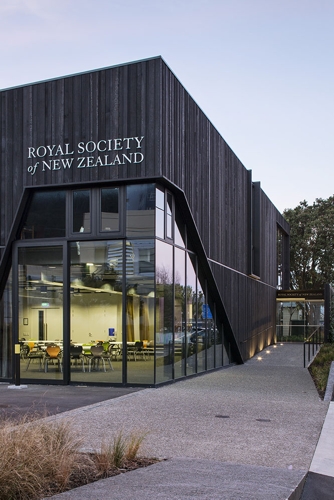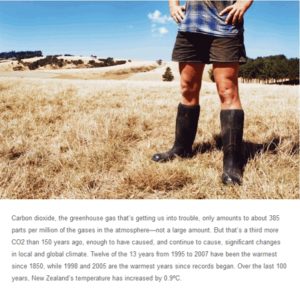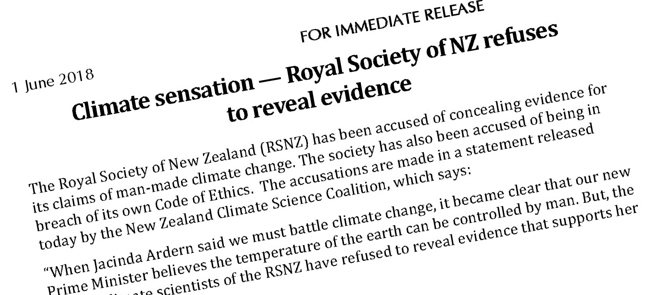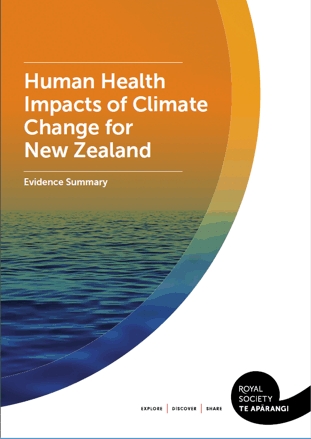Views: 263
Royal Society of NZ rejects tenets of science over global warming
SEE UPDATE BELOW

Award-winning architecture of the Royal Society of New Zealand headquarters in Wellington
The Royal Society of New Zealand refuse to give evidence that global warming is man-made.
They say the evidence is overwhelming but will not say what it is. In doing this, they fail to show that future warming will be dangerous and thus void all efforts to prevent it.
Countries don’t go to war without reason. Local bodies don’t close roads for nothing. Juries don’t convict without evidence. Continue Reading →
Views: 429
The bare-faced cheek
Now, I’m a sceptic about man-made climate change and though I frequently reproach those, such as the Royal Society of New Zealand, who give some inaccurate account of climate science, I have no particular position to defend but that of dispassion. To tell you the truth, I don’t know what position to adopt.
Because, quite simply, I have questions, which of course are unanswered, which explains my uncertainty. If my questions were answered, they wouldn’t survive, because answers destroy questions — it’s either that, or you go back to sleep. Credible answers will certainly decide the matter, then perhaps I too, like King Canute before me, will turn and contest the climate. Or not. Continue Reading →
Views: 299
National Geographic ignores the need for evidence
They’re just like the Royal Society

A National Geographic newsletter last March featured climate change. The picture to the right, which appeared in the newsletter, is from NIWA’s website. The caption summarises the effect of carbon dioxide on the climate. It says:
Carbon dioxide, the greenhouse gas that’s getting us into trouble, only amounts to about 385 parts per million of the gases in the atmosphere—not a large amount. But that’s a third more CO2 than 150 years ago, enough to have caused, and continue to cause, significant changes in local and global climate. Twelve of the 13 years from 1995 to 2007 have been the warmest since 1850, while 1998 and 2005 are the warmest years since records began. Over the last 100 years, New Zealand’s temperature has increased by 0.9ºC.
Views: 1930
Royal Society of NZ refuses to reveal evidence of man-made climate change


1 June 2018 FOR IMMEDIATE RELEASE
The Royal Society of New Zealand (RSNZ) has been accused of concealing evidence for its claims of man-made climate change. The society has also been accused of being in breach of its own Code of Ethics. The accusations are made in a statement released today by the New Zealand Climate Science Coalition, which says:
“When Jacinda Ardern said we must battle climate change, it became clear that our new Prime Minister believes the temperature of the earth can be controlled by man. But the leading climate scientists of the RSNZ have refused to reveal evidence that supports her belief.
Views: 1238
Did the Royal Society prove that we cause dangerous global warming?
Well, no
On April 7 (as you can read in my previous post) I wrote to Dr Julie Maxton, Executive Director of the Royal Society, London, asking a simple question:
I’ve been hunting for evidence for several years without success and now I’m thinking that the Royal Society will surely not let me down. I do hope you can provide a succinct answer. By what mechanism do our emissions cause dangerous global warming?
Shortly afterwards a reply arrived from her Executive Assistant: Continue Reading →
Views: 1340
Royal Society answers my inquiry
On April 7 I wrote to Dr Julie Maxton, Executive Director of the Royal Society, London, saying:
I’ve been hunting for evidence for several years without success and now I’m thinking that the Royal Society will surely not let me down. I do hope you can provide a succinct answer.
By what mechanism do our emissions cause dangerous global warming?
With enormous gratitude,
Views: 710
Royal Society website unavailable

Has anyone noticed that the Royal Society website in the UK was suddenly inaccessible about 24 hours ago?
Does anyone know why?
UPDATE April 8 10:57 pm NZT
Never mind, it’s back.
Views: 196
Kiwi Royal Society fails to produce climate evidence
The Royal Society of New Zealand (RSNZ) cannot substantiate their claim that mankind is causing dangerous global warming. The NZ Climate Science Coalition (NZCSC) have just spent months pursuing them for evidence, which they failed to produce. We believe that it does not exist. Continue Reading →
Views: 1790
Climate brevity: RSNZ don’t know the science of climate change
But first, Business opportunities in climate change

Liam Dann reports:
Climate change real or imagined is driving massive business change. A risk-management expert told him that the impact of climate change is real whether you believe the science or not. Most people, including those at senior levels of business and government, do believe the science, which means the world is going to be shifting to a lower carbon economy.
Continue Reading →
Views: 360
Royal Society news
Pacific Climate Change Conference 2018 21-23 February, Wellington. The 2nd Pacific Climate Change Conference will bring together a broad range of voices on climate change to discuss the recent research, plus the impacts to policy as well as public implications.
Views: 1402
Climate Health Impacts for Dummies
 There are important things to say about the NZ Royal Society’s deceptive and alarmist report on human health impacts from climate change, released last month.
There are important things to say about the NZ Royal Society’s deceptive and alarmist report on human health impacts from climate change, released last month.
The eight-page report sets out the strongest available case for New Zealanders to be fearful of dangerous anthropogenic global warming (DAGW). But we don’t find the case at all strong or at all scary – so we hope everybody will read and understand it. Continue Reading →
Views: 618
Royal Society whitewashes climate complaint
 In July 2016, Professor Tim Naish and Professor James Renwick embarked on a whistle-stop tour of 11 towns and cities giving a public slide presentation they called Ten by Ten: Climate Change (“Ten things you didn’t know about climate change”). Senior scientists with the NZ Climate Science Coalition raised concerns about the accuracy of the material being presented and on 26 August, before the tour was over, they lodged a complaint (pdf, 2 MB) with the Royal Society of New Zealand.
In July 2016, Professor Tim Naish and Professor James Renwick embarked on a whistle-stop tour of 11 towns and cities giving a public slide presentation they called Ten by Ten: Climate Change (“Ten things you didn’t know about climate change”). Senior scientists with the NZ Climate Science Coalition raised concerns about the accuracy of the material being presented and on 26 August, before the tour was over, they lodged a complaint (pdf, 2 MB) with the Royal Society of New Zealand.
This blog reported the complaint on 28 August. On or about November 23, a Confidential Draft Report came in from Professors Tennant, Scott and Watts, of the Royal Society Professional Standards and Ethics Panel. Now the the Final Report of the Panel (the Report) has been released, received by the complainants on December 7. Continue Reading →
Views: 284
Ethics breach by Renwick and Naish – shock Royal Society probe
NZ Climate Science Coalition announcement
The Royal Society of New Zealand has confirmed the commencement in accordance with its rules of a process to consider a complaint by several of its members that two Victoria University academics, Professors James Renwick and Tim Naish, have breached the society’s Code of Ethics in their public programme of lectures throughout the country entitled “Ten Things You Didn’t Know About Climate Change”. Continue Reading →
Views: 504
Renwick, Naish invoke malignant ‘consensus’, cite scandalous papers
Desperation palpable
See UPDATE, below
Professors James Renwick and Tim Naish are sounding global warming warnings around the country. We have received a copy of their presentation, called Ten by Ten: Climate Change – Ten things you didn’t know about climate change.
This academic presentation is filled with errors, though it’s funded by the Victoria University of Wellington and the Royal Society—which means your taxes, at least in part. Continue Reading →
Views: 356
Royal Society will save our climate
The Royal Society has made a submission to the MfE on Setting New Zealand’s post-2020 climate change target (pdf, 217 kB).
Nine pages of high-powered propaganda, impressive, sciencey-sounding scary stuff from real professors. Let me know what you think of it. Continue Reading →
Views: 224
Public climate boffins give poor service

From left, Drs David Wratt, Andy Reisinger and James Renwick.
Bob Carter and Bryan Leyland published a sceptical article in the Dom Post. Gareth Renowden penned a response which was republished on SciBlogs (run by the Science Media Centre), it’s scatalogical title signalling his customary toxic tone. Continue Reading →
Views: 3187
Prof Michael Kelly censures Royal Society

Dr Mike Kelly, Kiwi physicist, elected Fellow of the Royal Society in 1993, has been Prince Philip Professor of Technology at Cambridge University since 2002.
RS scientists ‘jeopardise their integrity’
Professor Michael Kelly has published a stinging indictment in the Daily Mail of the performance of the Royal Society. Refusing to mince his words, he says that the Royal Society scientists have adopted a role of ‘lobbying’ and in doing so ‘they jeopardise their purpose and integrity.’ Continue Reading →
Views: 242
GWPF, RS talk climate change
Barriers coming down?
Press Release 22/05/13
Global Warming Policy Foundation Invites Royal Society Fellows For Climate Change Discussion
London, 22 May: In response to a suggestion by Sir Paul Nurse, the President of the Royal Society, the Global Warming Policy Foundation has invited five climate scientists and Fellows of the Royal Society to discuss the current state of climate science and its wider implications.
In a letter to Lord Lawson, the GWPF chairman, Sir Paul stated that the Royal Society “would be happy to put the GWPF in touch with people who can offer the Foundation informed scientific advice.”
Sir Paul suggested that the GWPF should contact five of their Fellows: Sir Brian Hoskins; Prof John Mitchell; Prof Tim Palmer; Prof John Shepherd and Prof Eric Wolff.
The GWPF has now invited the five climate scientists to a meeting with a team of members of the GWPF’s Academic Advisory Council and independent scientists and has proposed a two-part agenda:
1. The science of global warming, with special reference to (a) the climate sensitivity to carbon dioxide and (b) the extent of natural variability;
2. The conduct and professional standards of those involved in the relevant scientific inquiry and official advisory process.
“I hope the Fellows of the Royal Society will be happy to meet with our team of scientists so that something positive can come out of Sir Paul’s recommendation,” said Dr Benny Peiser, the Director of the GWPF.
via Press Release: GWPF Invites Royal Society Fellows For Climate Change Discussion.
I like it when they talk to us.
Views: 124
If it was “settled science” how did you improve it?
For if it had no defects, why did you study it?
But if you studied it, why did you never deny the claim that it was settled?
Climate scientists of New Zealand: you have deceived us.
_______
The RSNZ is planning to announce progress in climate science since the AR4 in 2007.
Since 2007 and earlier, from Al Gore down, these arrogant shouts around the world have escaped challenge by the scientific establishment: “the science is settled” on climate change! The claim has been around for most of the century.
The Royal Society of New Zealand has never, to my knowledge, used the phrase “the science is settled.”
It did set up the government-funded Science Media Centre (SMC), with its Sciblogs department, which re-blogs numerous odious posts from such celebrated centres of scientific excellence as Hot Topic and Open Parachute. And those blogs and their manic commenters provide all the spittle-lipped propaganda you could ever wish for the “settled science” believers without needing contributions from the respected scientists at the RS. Continue Reading →
Views: 84
Wool gets in the eyes


With the Royal Society smoke ‘n’ sea level rise
Last September, the Royal Society published a report entitled “SEA LEVEL RISE Emerging Issues”, available as a pdf (645 KB). In the accompanying press release they had this to say:
Professor Keith Hunter, the Society’s Vice President of Physical Sciences, who contributed to the paper, says researchers are starting to be able to estimate the amount of rise that we should expect to see over this century and beyond. But he says these projections of future sea level rise depend upon the future melting of ice sheets, which is poorly known.
“The uncertain knowledge about ice sheet behaviour is the key reason why IPCC projections in 2007 did not state upper bounds for sea level rise. Similarly, Ministry for the Environment guidance in 2008 wisely left open the question of any upper limit on sea level rise.”
The paper states that some early scientific work into the effect of a warming climate on ice sheets in Greenland and Antarctica suggested that many metres of sea level rise could occur within a century. However, it says few scientists now consider that such rates are possible.
What do we learn from this?
We learn that we can’t guess future sea level rise, since we can’t guess future ice sheet melting; our mates at the UN and the MfE won’t touch it, and our first guess was several metres but now only the cranks go that far.
The press release expresses complete ignorance on future sea level rise. Great. So we also learn that scientists can make complete ignorance appear very interesting. Continue Reading →
Views: 125
Sea level rise is normal, my friends

Accelerated sea level rise debunked
A new analysis finds evidence of a weak deceleration in mean sea level rise in the Australasian region from 1940 to 2000 in four very long-term tide gauge records.
It brings long-term confirmation to what the South Pacific Sea Level and Climate Monitoring Project (SPSLCMP) has been reporting for about 10 to 15 years — slow, non-alarming sea level rise. Continue Reading →
Views: 137
Like diamonds, CO2 is for ever

Wrong again, huh?
Hot Topic, in a post endearingly headed “I’ve been wrong before“, berates the CCG for reporting a criticism of the Royal Society. Chemist Dr Klaus L. E. Kaiser published evidence of miscalculations by the RS which was supported by Swedish Professor of Applied Mathematics, Claes Johnson.
But unfortunately the confidence shown by Gareth Renowden in rebutting this criticism of the Royal Society does not extend to admitting the extent of uncertainty about the carbon dioxide cycle. To listen to Gareth, you’d think the science was settled, but in fact there are substantial unknowns.
He introduces his rebuttal (ignoring his opening paragraph, which contains ad hominem remarks) with this:
Unfortunately for Kaiser and Sullivan, the Royal Society (otherwise known as the most august of scientific institutions, 350 years old this year) didn’t make any schoolboy errors. The amount of CO2 in the atmosphere is determined by the interchange of carbon between the atmosphere, oceans and biosphere. Over the last few hundred years the ocean and biosphere have been doing us a big favour by absorbing two thirds of the CO2 we’ve emitted. The balance has been steadily accumulating, which is why atmospheric CO2 has risen from 280 ppm to 390 ppm.
This seems to be true, although the proportion of human emissions being absorbed by natural processes is specified variously, by different authorities, between about 45% and the 66% Gareth mentions. But whatever figure you take, it does leave a “balance” of an amount which “steadily accumulates”, accounting for a rise in atmospheric concentration from about 280 ppmv to about 390 ppmv now.
But watch the pea under the cup. Continue Reading →
Views: 167
Royal Society Humiliated

Global warming basic maths error
First published at Suite101.com Thursday, October 14, 2010
Top international experts prove British numbers on carbon dioxide are wrong. Royal Society blunder grossly exaggerates climate impact.

This is an adopted article.
German born chemist, Dr Klaus L. E. Kaiser has published evidence that proves the Royal Society (RS), London, has been caught out making schoolboy errors in mathematical calculations over the duration of carbon dioxide (CO2) in Earth’s atmosphere. Backed up by a review by a leading Swedish mathematics professor the revelation is a serious embarrassment to the credibility of the once revered British science institute and a major setback for its claims about climate change.
A gaffe in their own basic calculations led the RS to falsely find that CO2 would stay in the atmosphere for thousands of years rather than a dozen or so as per peer-reviewed studies show. Global warming skeptics have been quick to condemn the error and demand an apology and immediate correction.
The Royal Society advises the British government on matters concerning climate change. Due to the scale of the error any forthcoming review will necessarily result in a substantial downward revision of the threat posed by CO2 in the official government numbers. Continue Reading →
Views: 232
Seismic shift in climate thinking

The Royal Society, bastion of conventional thinking on global warming, is about to announce a change in its thinking! What a glad day. I cannot wait to read their whole statement. – Richard
Here’s the full story: Continue Reading →
Views: 286
Royal Society gives us nightmare without the terror
UPDATED 30 Sep 2010, 16:00

New graph comparing predictions from RSNZ and IPCC. Eye-opening!
The Royal Society of New Zealand just published a paper, Sea Level Rise – Emerging Issues. It reports new, more alarming predictions of sea level rise around New Zealand during the rest of the century. Or does it?
The paper warns us to expect the sea to rise several metres by 2100. Or does it?
Actually, it doesn’t and it doesn’t. We can all go home.
On a careful, sensible reading, the paper says very little but, by employing phrases such as “increasingly rapid melting”, “recent estimates of future rise are greater” and “global sea levels rose by around 120 metres”, among others, the casual reader gains the impression of dangerous rises to come. The story imparts grave concern.
But it’s all air kissing, candy floss and nonsense. They say nothing that would scare a butterfly. Continue Reading →
Views: 236
Gluckman: knows nothing about climate

That incomparable writer, Miss Michele Hewitson, of the NZ Herald, has interviewed our Chief Scientific Advisor, Professor Sir Peter Gluckman, and the report appears in today’s edition.
Now, Michele often specialises in the human side of your famous person, not perhaps delving too far into the deeds and sayings for which he might be famous, but humorously describing the ebb and flow of the interview or the sometimes awkward situations that develop as our intrepid prober of public persons boldly goes where few reporters dare.
Michele can be genuinely funny and wondrously insightful by turns. That is how today’s example has turned out, as Miss Hewitson gets her subject to converse on everybody’s favourite topic — themselves. Which she accomplishes by various superficial means, such as asking why he has a beard.
Of all the fascinating and significant aspects of Gluckman’s life and intelligent toil, his beard must be the least important. Continue Reading →
Views: 74
Gluckman stumbles, Part 2 – Sludge

UPDATE 18 July – see end (Royal Society)
This is the second instalment of a review of Professor Sir Peter Gluckman’s speech of 9 June, entitled Integrity in Science: Implications from and for the Climate Change Debate. The first instalment was Gluckman stumbles on the truth.
In using the term “denialist”, our Chief Science Advisor descends to the sludge at the bottom of the barrel of scientific debate. It is a matter of profound regret that the CSA imports this malignant, divisive term to his prestigious office and the hallowed halls of the Royal Society.
Soaked in fallacy
There is no reason for an honest man of science to employ erroneous techniques of observation or debate, for what would it profit him? They would only ensure, first, that his argument fails and, second, that his credibility is damaged, the greater for being the higher in rank. So this is an enormous lapse in judgement by our top scientist and deserves the firmest reproach. Endorsement of Sir Peter’s comments, such as by the Royal Society (see below), is similarly reproachable.
In adopting the technique – or logical fallacy, whichever you prefer – of the ad hominem argument by labelling those who disagree with him as denialist and rejectionist, he engages in the worst scientific conduct. It is no less than poisonous, and that this toxic stuff now emanates from the summit of our scientific pyramid gives it a cachet it should never receive.
Whatever familiarity the term has achieved under relentless repetition, the ad hominem fallacy it is soaked in is undiminished and thus it can never be acceptable among the well-educated. Continue Reading →
Views: 409
Throw us a bone, mister?

Royal Society dwells in rarified realm
In their philosophical banquet hall they dine on pure science. Their table groans under the weight of hypotheses, complex thinking and evidence. Their huge intellects, beyond the ken of we ordinary folk, address issues we cannot imagine and their highly skilled minds devise solutions to problems we didn’t even know existed.
We are grateful when at last the Royal Society academicians let us know what for our good they have decided to do, then we can express our appreciation for the care they take over us.
Yesterday, the Chief Science Advisor, Peter Gluckman, made a speech at NIWA in Auckland. He addressed, as was proper for a scientist in the exalted position of advisor to our Prime Minister, high questions of science and its practise and development. He referred to the Royal Society, in England, celebrating this year the 350th anniversary of its founding. What a wonderful society, wonderfully inspired and courageous in countless periods as it championed the cause of empirical, evidence-based truth and reason.
Too much dogma…
The good Dr Gluckman bemoaned the fact that “too many decisions are still based on dogma rather than knowledge”. How true that is. But see how that barb lands uncomfortably close to our admirable Royal Society. Does he know that the vexed question of anthropogenic global warming, about which he asserted later in his speech quite firmly: “I am not going to enter the debate about whether the world is warming and whether that warming is anthropogenic,” is ruled by the very dogma he appears to deplore? Continue Reading →
Views: 353
Trenberth and Royal Society clash head-on

Here’s an article by Kevin Trenberth from this week’s Science Journal that directly contradicts the recent statement on Science, Climate Change and Integrity by Professor Keith Hunter, Vice-President of the NZ Royal Society. We look forward eagerly to the public debate that will surely follow this disclosure of discord within the formerly close-knit climate science community.
‘Missing’ heat may affect future climate change
Satellite instruments and ocean sensors limited
Current observational tools cannot account for roughly half of the heat that is believed to have built up on Earth in recent years, according to a “Perspectives” article in this week’s issue of the journal Science.
Scientists at the National Center for Atmospheric Research (NCAR) in Boulder, Colorado, warn that satellite sensors, ocean floats and other instruments are inadequate to track this “missing” heat, which may be building up in the deep oceans or elsewhere in the climate system.
“The heat will come back to haunt us sooner or later,” says NCAR scientist Kevin Trenberth, the article’s lead author. Continue Reading →
Views: 359
Oceans don’t warm as they lose heat

Keith Hunter’s statement gives another reason to believe in Anthropogenic Global Warming:
It is also clear that the oceans absorb about 85% of the excess heat resulting from this radiative forcing by greenhouse gases (as well as about 40% of the carbon dioxide). Detailed measurements of the changes in oceanic heat content, and the temperature rise that accompanies this, agree quantitatively with the predicted radiative forcing.
This is far from “clear”. It is both absurd and wrong.
- The ARGO programme has found that the ocean has been cooling since 2003. Despite expectations of warming, temperature measurements of the upper 700 m of the ocean from the ARGO array show no increase from 2003 to 2008.
- It is physically impossible. CO2 radiates infrared at wavelengths of about 12 microns, while the limit for sea absorption is 3 microns.
The greenhouse effect involves wavelengths greater than 3 microns (mostly around 14 for CO2), while the absorption spectra for the oceans cover wavelengths less than 3 microns (mostly in the visible light range). It is not physically possible for the oceans to absorb 85% of the energy recycled by the Greenhouse Effect – and it’s even harder if you accept the IPCC argument that the impact of an enhanced greenhouse effect occurs near the tropopause (10-15 km above the ocean surface with a CO2 optical depth of the order of 10 m).
Is Prof Hunter right? Is this a reason to believe in Anthropogenic Global Warming?
Views: 76
So it’s simple — so describe it

Keith Hunter’s statement gives, as the third reason to believe in Anthropogenic Global Warming, this piece of evidence:
It is simple physics that these extra gas concentrations will trap an increased amount of outgoing solar radiation reflected off the Earth’s surface, of the order of 1.5 watts per square metre of the Earth’s surface.
Simple physics? If it is “simple physics” it should be able to be derived and written up in one page or at most a few pages of equations and calculations. How about it, Professor?
In reality, the climate systems are vast, complex and we understand them poorly. If we understood them well, people like Keith Hunter would describe them and not take refuge in weasel words that obscure the difficulties of understanding.
It was a silly mistake to mention “outgoing solar radiation” and damage his credibility. I guess that was the risk he ran of commenting outside his expertise.
The physics of the greenhouse effect might be considered simple, but Hunter here ascribes causation for warming to humanity’s increased emissions of carbon dioxide.
Which is a very different thing.
Am I wrong?
Views: 26
Sustainability the new tyrant

The statement from Professor Hunter includes this comment regarding what we actually do about the problem of climate change:
The mitigation measures suggested for climate change (reduced use of carbon-based fuels, more renewable energy sources, carbon capture and storage, less use of nitrogen-based fertilizers) are all part of a portfolio of approaches that are needed to produce a more sustainable world.
See how the problem of climate change morphs at the end into producing “a more sustainable world”? Why does the focus change? What is the connection between climate change and the notion of sustainable practices, which covers an enormous range of activities, from sensible use of water supplies to mining for minerals to best farming practice to how to supply our hospitals?
Surely climate change is involved in only some of the “sustainability” issue?
Or could it be that a new codeword has been introduced? Sustainability is as ill-defined (or remains as undefined) as climate change. So as climate change dissolves as an unquestioned excuse for socialistic interference in our lives and as the mother of all tax justifications, will sustainability take over? Has it already taken over?
Continue Reading →
Views: 20
Do emissions match measured increases in sea and air?

Keith Hunter’s statement asserts: The evidence pointing towards AGW comes from multiple independent lines of argument, each pointing in the same direction. … a few examples follow.
This is his second example:
The amount of extra carbon accumulated in the ocean and the atmosphere matches the known quantity emitted by the combustion of fossil fuels.
How can he be so sure, when nobody else is?
Views: 81
Have human activities increased CO2?

Keith Hunter’s statement asserts: The evidence pointing towards AGW comes from multiple independent lines of argument, each pointing in the same direction. … a few examples follow.
This is his first example:
It is a plain fact that human activities have significantly increased the concentrations of greenhouse active gases in the atmosphere, particularly since the mid-20th century.
Who will tell him that nothing could be further from plain? What does he mean by “greenhouse active gases”? Does he mean that water vapour has increased in the atmosphere? Does he include methane? Nitrous oxide? Or does he only mean carbon dioxide?
Does he exclude the possibility that increased temperature has driven more carbon dioxide from the oceans into the atmosphere?
Views: 62
Emanations from Royal Society less than lordly

There’s little of royalty attached to recent climate change missives emanating from the Royal Society. Did I call them missives? I meant to say emissions.
Professor Keith A. Hunter, FNZIC, FRSNZ, Vice-President, Physical Sciences, Mathematics, Engineering and Technology, Royal Society of New Zealand, issued a statement on 7 April entitled Science, Climate Change and Integrity.
He means to support the hypothesis that human activity is dangerously warming the world’s climate. He uses whole sentences and impeccable syntax, but the evidence he cites is wrong.
The package is lovely but the contents rotten.
There are now several of our prominent public scientists who are unaware it is not sufficient merely to tog themselves out in the royal or other esteemed branding — they must actually live up to it and, before all else, speak the truth.
The senior scientists who’ve made misleading public statements about global warming include Peter Gluckman, David Wratt, James Renwick, Brett Mullan, Andrew Reisinger and Jim Salinger.
Their cheeks are smooth and their mouths are smiling but their breath stinks. Continue Reading →
Views: 133
No curiosity? Then be a journalist
This story is datelined London, December 1, and comes from the Australian Associated Press. It was posted on the web site of the Royal Society of New Zealand—behind a paywall. [Full article at the end.]
First: it is frustrating, suspicious and avaricious for our Royal Society to hide its “news” behind a paywall. How widely, really, does it wish the news to spread, when it publishes only to its members?
Second: the level of uninterest evinced by this reporter in the matter he is reporting is quite awe-inspiring. There is not the merest evidence of curiosity, investigation or the most rudimentary checking of facts.
Be a journo — or join our Royal Society
The main assertions in this story are inane, blatantly alarmist, undisguised advocacy and wrong. That the story is promulgated by our once-proud, independent, trustworthy and in particular scientific Royal Society is now a source of shame to all New Zealanders. There is no doubt that our Royal Society has abandoned, in respect of the global warming controversy, any pretence to objective investigation. It has instead adopted such a strong intention to champion the hypothesis of man-made control of the climate that it blinds itself to the necessity of finding evidence.
Their intention moves them to breach their founding principles. Look them up. Their behaviour is a matter of law, so it will give way, given enough pressure, to legal or parliamentary sanction. Swell, public opinion, swell!
Our Royal Society even helps champion, through web site connections, the blatantly alarmist web site Hot Topic, which routinely insults scientific sceptics asking reasonable questions with terms like crank, denialist and worse. We have come to expect that from the likes of Mr Renowden and his bigots, but the support for it from the scientists of the Royal Society is reprehensible. It is scientific misbehaviour.
Here is a sampling of the AAP story’s errors, inadequacies and naked prejudice. Continue Reading →
Views: 330

